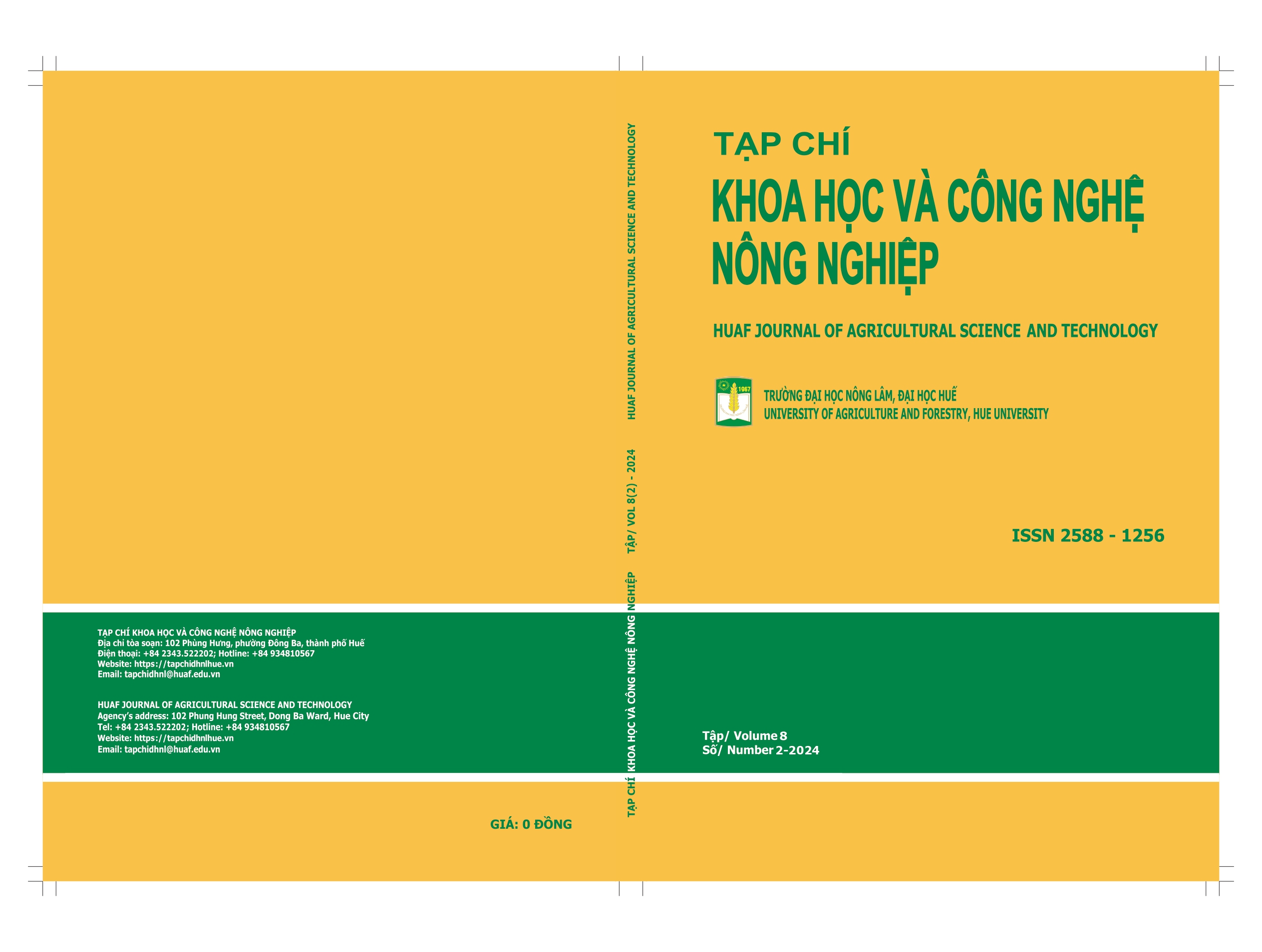##plugins.themes.huaf_theme.article.main##
Abstract
Black-headed caterpillar (Opisina arenosella Walker) is a serious pest on coconut trees in Vietnam. Biological measures using parasitic wasps to control black-headed caterpillar (BHC) are being studied and implemented. Using coconut leaves to mass rearing BHC for parasitic wasps is high cost and difficult to apply. Therefore, it is necessary to research alternative food to replace coconut leaves to rear BHC. The research on biological characteristics of BHC on Changai jackfruit leaves was carried out under laboratory conditions, temperature 28 ± 2°C, humidity 70 ± 5% and with 12L:12D. The results showed that BHC reared on Changai jackfruit leaves had similar body sizes compared to those reared on coconut leaves in previous studies. When fed with Changai jackfruit leaves, BHC complete their life cycle (54.0 days for females and 52.5 days for males). Females laid 109.0 eggs on average, and the total number of eggs laid by the female was 170.5. Female and male lifespans were 5.2 days and 5.0 days, respectively. From the results of this study, it showed that Changai jackfruit leaves can be used instead of coconut leaves for mass rearing parasitic wasps. However, it is necessary to research on the quality of parasitic wasps when using BHC rear on Changai jackfruit leaves as food.

